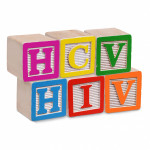The severity of liver fibrosis is associated with cognitive dysfunction independent of hepatitis C virus (HCV) or HIV status, at least among women living with one or both viruses. Researchers conducted a cross-sectional study of 1,479 women from the Women’s Interagency HIV Study (WIHS) and presented their findings at the 2016 Conference on Retroviruses and Opportunistic Infections (CROI) in Boston.
The researchers determined fibrosis severity through the aspartate aminotransferase to platelet ratio index (APRI), and also conducted neuropsychological testing among the women through a one-hour testing battery. A total of 303 of the women were given liver transient elastography tests.
The women were 46 years old on average. Fifty-two percent were HIV monoinfected, 5 percent were HCV coinfected, and 16 percent were HIV/HCV coinfected. Eighty-three percent had no fibrosis or mild fibrosis, 14 percent had moderate fibrosis, and 3 percent had severe fibrosis.
Having moderate or severe fibrosis was independently associated with deficits in learning, executive function (higher-level cognitive skills), memory, psychomotor speed, language fluency and fine motor skills.
The researchers also found independent associations with cognitive dysfunction, albeit smaller than those seen connected to moderate or severe fibrosis, for HIV, which was associated with deficits in learning and memory; and HCV, which was linked to deficits in executive functioning and attention. When fibrosis was measured by liver transient elastography instead of APRI, its severity was associated with deficits in attention, executive functioning and fluency.
To read the conference abstract and poster, click here.







Comments
Comments